![]()
Business Council for Sustainable Development in Hungary
1118 Budapest, Ménesi street 9/a.
Policies and statements
Privacy policy
Competition Law Statement
Code of Ethics
World Business Council for Sustainable Development (WBCSD) National Partner
The ESG approach is no longer merely a marker of responsible corporate conduct; it has become a legal and market requirement. Expectations around reporting and supplier risk management are tightening year by year, while the domestic regulatory environment—aligned with the CSRD and CS3D directives—provides increasingly precise guidance on what companies must do. Built on the same logic, the OPTEN Enterprise ESG Platform turns the collection, structuring, and assessment of data required for reporting into a digital, auditable process tailored to large-enterprise compliance needs.
Following the 2025 amendments, supplier due diligence has become a particularly sensitive area: under the applicable rules, micro and small enterprises may not be required to provide ESG data until 30 June 2027, and they may not undertake such obligations by contract or declaration; more proportionate, flexibility-based rules apply to medium-sized enterprises as well. This prohibition complicates traditional, questionnaire-based supplier compliance mapping on the side of large companies, even as business risks extend across the entire supply chain.
Data-driven assessment can help reconcile the tension between regulatory constraints and risk-management needs. Accordingly, OPTEN’s approach does not rely on prohibited, direct ESG data requests to micro and small enterprises; instead, it uses models derived from corporate information and public sources to provide an objective view of suppliers across legal compliance, financial exposure, environmental practices, and workforce considerations. The resulting, comparable indicators fill critical gaps in the supplier map without triggering data requests that would breach the law.
Within this framework, the OPTEN ESG Index and its associated rating component play a central role: OPTEN’s Corporate ESG software is the first and only solution in Hungary accredited by SZTFH (the Supervisory Authority for Regulated Activities) that combines an ESG rating with the software platform and supports end-to-end supply-chain due diligence. The methodology is based on 75 input parameters, enabling the risks of micro and small suppliers to be evaluated quickly, reliably, and automatically.
The platform’s architecture aligns with the domestic ESG framework: the ESG Act and the data points prescribed by SZTFH are captured in a structured manner on a single interface, supplier exposures are identified, and outcomes are made retrievable in an auditable way using consistent terminology.
Compliant supplier due diligence today must meet a dual test: it must ensure that micro and small enterprises are not burdened with prohibited data-disclosure obligations, while still producing a decision-ready risk picture for large-company procurement and compliance functions. OPTEN’s solution fits this space by integrating accreditation-based methodology with software-driven workflows, thereby enabling transparent, comparable, and verifiable identification of risks across the supply chain.
Ultimately, sustainability compliance is also a matter of competitiveness: where compliance is measurable and auditable, organizations can focus on material risks and manage their supplier networks in a data-driven manner while respecting legal constraints. This is what connecting “transparency and competitive advantage” means in practice today.
Further information and registration: www.esgkerdesek.hu
Pepsi production has been relaunched in Hungary through a joint investment by Szentkirályi Hungary and Mattoni 1873. The new, state-of-the-art facility is designed to minimize environmental impact: thanks to local production, an annual 1.5 million truck kilometers of transport and the associated emissions will be eliminated, while the shortening of supply chains further enhances positive environmental outcomes. The world-class bottling lines fill Pepsi soft drinks into rPET bottles made from plastics collected through the deposit return system, providing a model example of a circular economy in practice.
On June 2nd, Levente Balogh, Founder and Chairman of Szentkirályi Magyarország, announced that the vast majority of Pepsi products intended for the Hungarian market will be produced locally again, at Szentkirály. All this thanks to an HUF 11 billion joint investment with the Mattoni 1873 Group, led by Alessandro Pasquale. The newly inaugurated plant is equipped with cutting-edge technology, including a syrup production facility, water treatment units, and new bottling lines dedicated to serve the Hungarian market.

Pepsi production line
Pepsi’s “return to home” carries strong emotional significance: in 1971, when the first bottles of the iconic American soft drink rolled off the production line of the Capital Mineral Water and Ice Industry Company, Pepsi quickly became a symbol of Western lifestyle in socialist Hungary, offering a taste of freedom and the West with a capital W, like a “sip of America.” After the fall of communism, the brand continued its career as one of the favorite soft drinks of the younger generations. However, in 2014, due to economic pressures, the owner at the time decided to discontinue production in Hungary.
A new chapter in Pepsi’s domestic history was opened by the joint investment of Szentkirályi Magyarország and Mattoni in 1873, which, however, was realized in the spirit of a new business philosophy. Both companies have long been committed to environmental protection and sustainable development, as both Levente Balogh and Alessandro Pasquale have built their business success on natural mineral waters, products that are intertwined with respect for the values of nature. Both have long been advocates of sustainability -specifically, the circular economy model- and they implement their business developments in line with this philosophy. This was also the case when Pepsi production was restarted.

Press conference event, from left: Alessandro Pasquale, Kata Dobó and Levente Balogh
Bringing production back to Hungary significantly shortens the supply chain, marking an important step toward more sustainable operations. Localizing production, i.e., producing it in a location where raw materials and other resources necessary are available, means that goods reach consumers via the shortest possible route, thereby saving a great deal of environmental impact. In the case of Szentkirályi’s new plant, eliminating the need to import Pepsi drinks, transport is reduced by 1.5 million truck kilometers per year, which means that less harmful substances are released into the air.
The recycling of packaging materials is an important part of the circular economy. In one hand, it significantly reduces the need to produce new plastics, which lowers carbon dioxide emissions, in addition circularity of packaging prevents plastic bottles from polluting the environment by ending up in landfills or in nature. Hungary’s newly introduced deposit return system plays a crucial role in this, ensuring that packaging waste is properly collected and recycled, turning used PET bottles into valuable secondary raw material for soft drink production. The significance of the world-class production lines installed in Szentkirály lies in their ability to produce energy-efficient bottles containing recycled raw materials, known as rPET bottles. This completes the circular economy cycle, closes the loop as the PET bottles collected through the deposit return system will be turned back into PET bottles – filled with Pepsi soft drinks.

Preform before blow molding
These measures, together with advanced water and wastewater treatment systems installed at the plant of Szentkirály, ensure that Pepsi production operates with the smallest possible ecological footprint. The latest joint “project” of Levente Balogh and Alessandro Pasquale is intended as a working example of the circular economy, pointing the way forward for the future development of the Hungarian economy.
Sustainability that brings social value and business success
In June 2025, we celebrated our fifth anniversary. From a small professional initiative, we have grown into a dynamically expanding, Hungarian-owned consultancy at the forefront of the sustainable construction economy in the region. On this special occasion, we proudly look back at the milestones and achievements we reached together with you—our partners and colleagues.
Pioneering role in sustainable development
Greenbors has become a key player not only in Hungary but also in the Central European region. We provided consultancy for the first EU Taxonomy verification in Hungary. Our founding partner, Zsombor Barta, was responsible for the first BREEAM accreditation in Hungary, as well as for the first successful BREEAM certifications in Serbia and South Korea. Our company is behind the first BREEAM-certified residential building in Hungary, and we have completed the most BREEAM certifications in the country. We’re proud to have contributed to the development of Hungary’s first zero-emission carbon roadmap, and many of our partners have won the HuGBC Zero Carbon Award.
Innovation with artificial intelligence
Our commitment to sustainability has reached a new milestone with an AI-based assistant tool developed in cooperation with our IT partners. This innovation revolutionizes our consultancy work by enabling us to achieve our clients’ complex sustainability goals faster and at a higher quality—reducing project lead times by up to 30%.
Credibility in everyday practice: Walk the talk
We don’t just promote sustainability through our services—we incorporate it into every aspect of our operations. Our offices use recycled furniture, most of our colleagues work on refurbished laptops, and our business cards are made from recycled paper and stamped by hand. We saved our office plants from being discarded, and we prioritize public transport, micromobility, and car-sharing to minimize our ecological footprint.
Knowledge sharing and nurturing future professionals
Supporting the next generation of experts is a key priority for us. In collaboration with partner universities, our successful internship program provides students with the opportunity to gain relevant experience and build long-term careers. Several of our current consultants began their journeys with us as interns.
Committed to a sustainable future
Over the past five years, our professional team has grown not only in size but also in expertise. While we initially specialized in BREEAM In-Use and New Construction certifications, today our multidisciplinary team also offers LEED, WELL, EU Taxonomy, DGNB, and ESG advisory services. We confidently manage complex projects in energy and biodiversity as well.
We thank everyone who has been part of our journey so far—stay with us and let’s write the next success stories together!
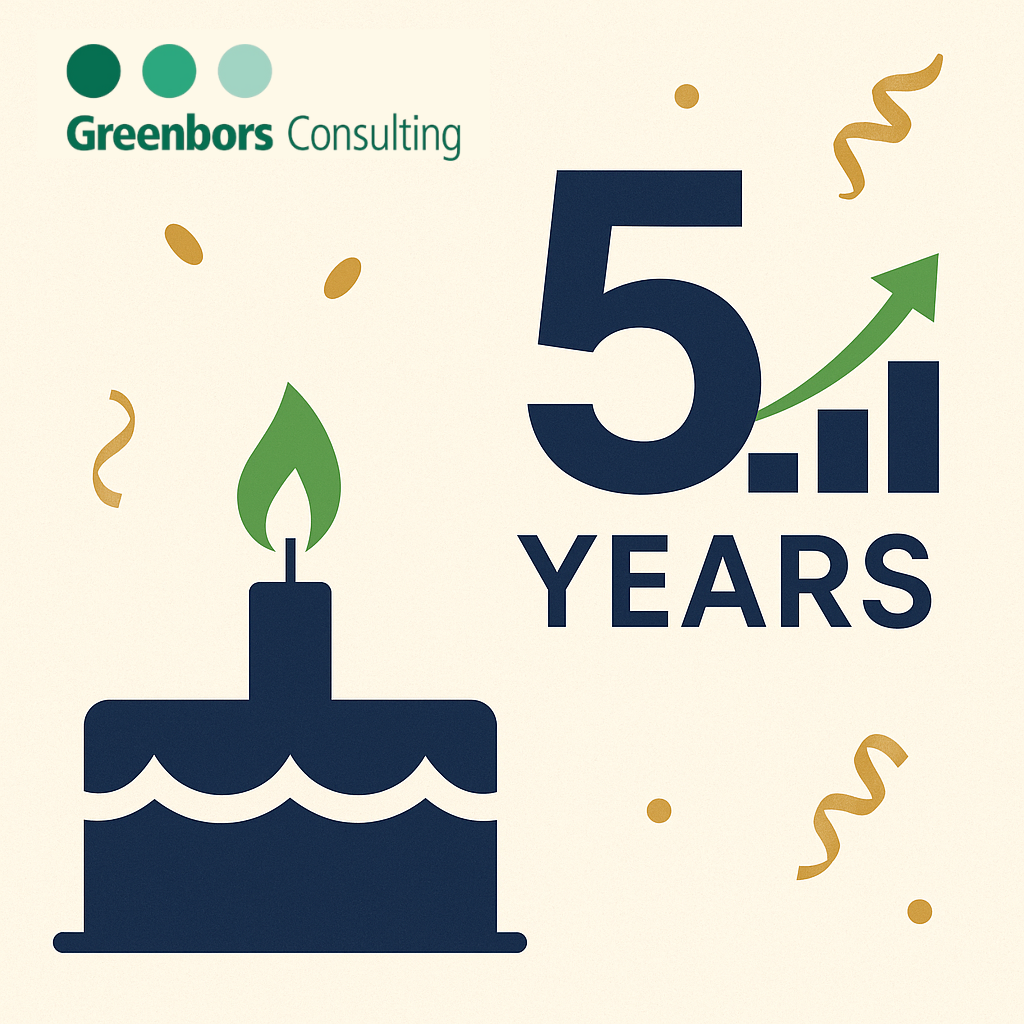

From assessing supplier risks to aligning with international frameworks, navigating today’s ESG landscape can feel complex. Until now, most organisations have struggled to assess where they truly stand and what concrete steps to take next.
The ESG Assessment Tool changes this. Co-developed with Inogen Alliance partners, it combines the power of global sustainability expertise with local advisory knowledge. For the first time, companies can access a single solution that evaluates their ESG maturity, benchmarks performance against industry peers, and highlights exactly where action is needed.
Unlike traditional assessments, this tool is aligned with the world’s most widely recognised ESG frameworks – GRI, CSRD (ESRS), SASB, TCFD, ISSB, and BRSR. This ensures relevance whether your company operates in Europe, Asia, or the MENA region.
With AI-powered analysis, the tool delivers immediate ESG scoring, uncovers hidden risks, and provides tailored recommendations for action. The results can be refined further in a personal consultation with Inogen Alliance experts, ensuring guidance that reflects both international best practice and local regulatory realities.
Compliance deadlines are approaching fast, and companies that delay risk not only penalties but also reputational and financial setbacks. The ESG Assessment Tool is more than a checklist. It is a transformative strategic advantage, giving businesses clarity, comparability, and the confidence to lead in sustainability.
Discover how the ESG Assessment Tool can accelerate your ESG journey.

This summer, AutoWallis supported the Bátor Tábor Foundation with a special charity campaign.
The Bátor Tábor Foundation is one of Hungary’s best-known charitable organizations, which every year helps seriously ill children and their families to forget the sadness of everyday life, often spent within hospital walls, and to come to terms with any tragedies they may have experienced. The camp is completely free for participants, so it is crucial for the organization to be able to raise the necessary funds for its operation every year.
The inaugural Bátor Rally held in 2025 with the intention of becoming a tradition, was created in cooperation between the Bátor Tábor Foundation and AutoWallis. As the leading automotive trading company and mobility service provider in the Central and Eastern European region, we provided premium, high-end cars for donors to participate in the event as part of this innovative fundraising initiative.
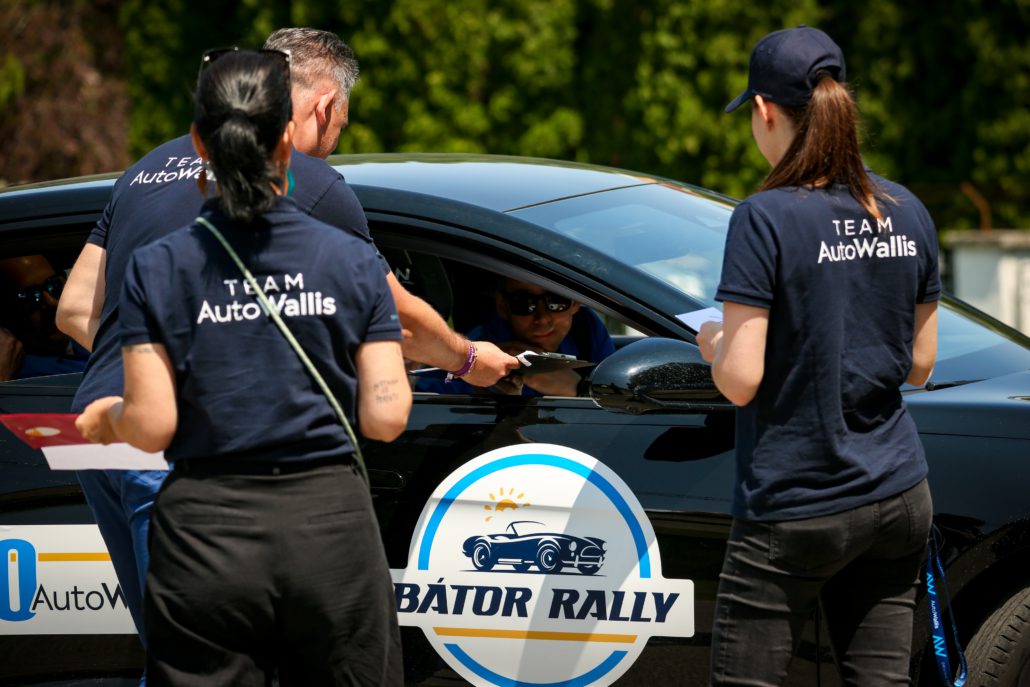
The Bátor Rally was a special fundraising event that made it possible to support the Bátor Tábor Foundation. In exchange for their donations, donors were able to sit in one of the cars participating in the rally and take part in a day of motoring fun. At the end of the day, they had the opportunity to learn about the work of the foundation at the Bátor Tábor camp in Hatvan, and they could also increase the donations with additional amounts at a charity auction. AutoWallis also joined the fundraising effort on its own communication platforms and channels, working together with the bidding competitors.
For AutoWallis, supporting the Bátor Rally was an excellent opportunity to emphasize the company’s role in creating not only business value but also social value. With this initiative, we contributed to the community-building efforts of Bátor Tábor and created an opportunity for social dialogue on the topics of donation and support for sick children.
By supporting the event, we were able to authentically demonstrate that similar socially responsible decisions are an integral part of AutoWallis’ corporate strategy. In addition, organizing the event provided an opportunity for the company’s employees to volunteer, and its community-building power enabled colleagues at AutoWallis who did not know each other before to work together for a good cause.
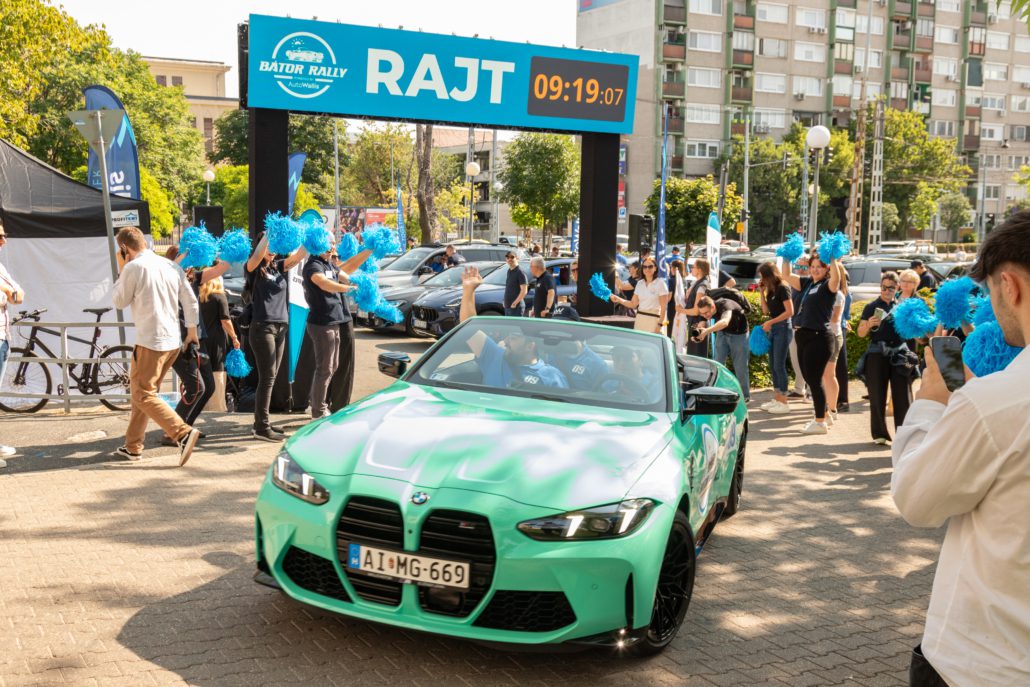
The joint effort paid off: participants in the first Bátor Rally raised 36 million forints, which will be used to provide joyful recreation for many sick children.
At Auchan, we don’t just talk about sustainability, but we have been actively working on it for several years. As a key player in the retail sector, we know exactly that we have a responsibility in this – as a lot of people come to us every day.
By joining initiatives such as Plastic-Free July, our goal is to inspire and educate our customers and employees.
One of the most exciting novelties of this year’s Artificial Mother-Free July was the green personality test, which was completed by nearly 2000 people. They received direct feedback on where they are in making everyday environmentally conscious decisions, in which they can always count on Auchan.
We raffled off 200 sustainable products among the respondents, and the main prize was a Trust Point worth HUF 100,000. 🎁
Thank you to everyone who joined us for working together step by step for a more livable future! 💚
hashtag#műanyagmentesjúlius hashtag#Auchan hashtag#Fenntarthatóság hashtag#zöldteszt hashtag#tudatosvásárlás hashtag#Bizalomkártya
How can we ensure the growing population’s need for high-quality protein in a circular manner? This topic was at the center of this year’s exciting BCSDH weekend program for executives and their partners.
The professional program began on Friday at AGROLOOP’s Üllő plant, which was handed over last December, where host Rajmond Percze, founder and managing director, welcomed the participants. He presented the history of the company’s founding and the basics of its operations, which are based on a specifically sustainable strategy. His personal commitment was greatly influenced by the BCSDH “Future Leaders” program, after which he decided to found a company operating on sustainable principles. Sustainable food, agriculture and animal husbandry are major challenges for the world. A company that produces high-nutritional-value animal protein and fat suitable for animal feed from fly larvae offers a solution to this problem in a fully circular process. This low-carbon and low-water-footprint solution was created to help make animal husbandry sustainable so that we will not have to live on insects in the future. The factory tour followed the process from the arrival of the eggs to the “harvesting” of the 12-day-old larvae.
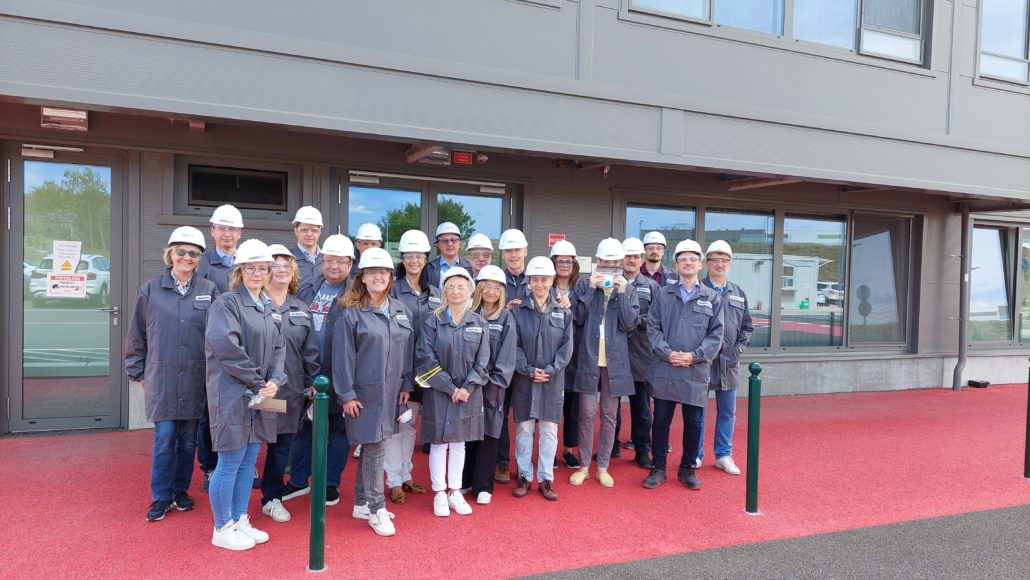 | 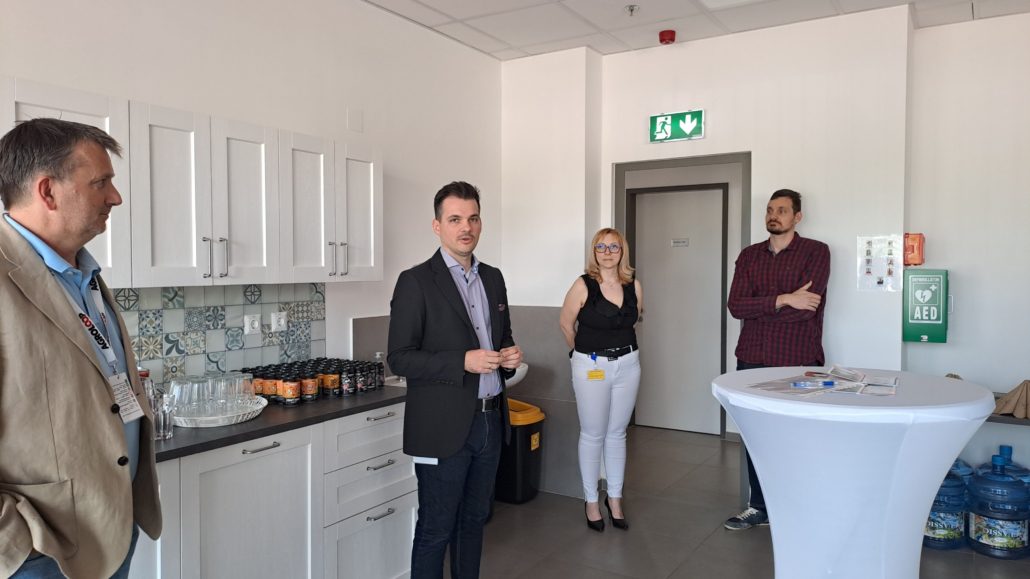 | 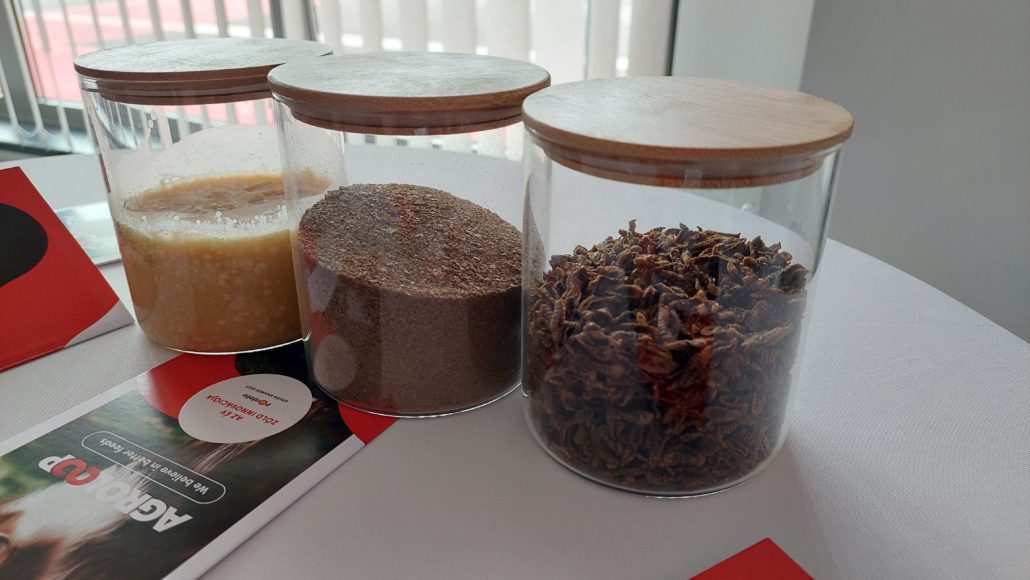 |
The next day, Master Good hosted the team in Kisvárda, and after a video message from Péter Bárány, managing director, Csaba Farkas, director of innovation and sustainability, welcomed the participants and presented the tremendous progress made by the Bárány family in the field of poultry breeding and processing. Master Good’s pioneering sustainability measures, which are based on emission and carbon footprint data that are unique and detailed in the industry, place the company at the forefront internationally. During the factory tour, which ended in the beautiful Japanese garden, participants were able to see the almost completely circular process, from feed production to 100% utilization of waste and by-products.
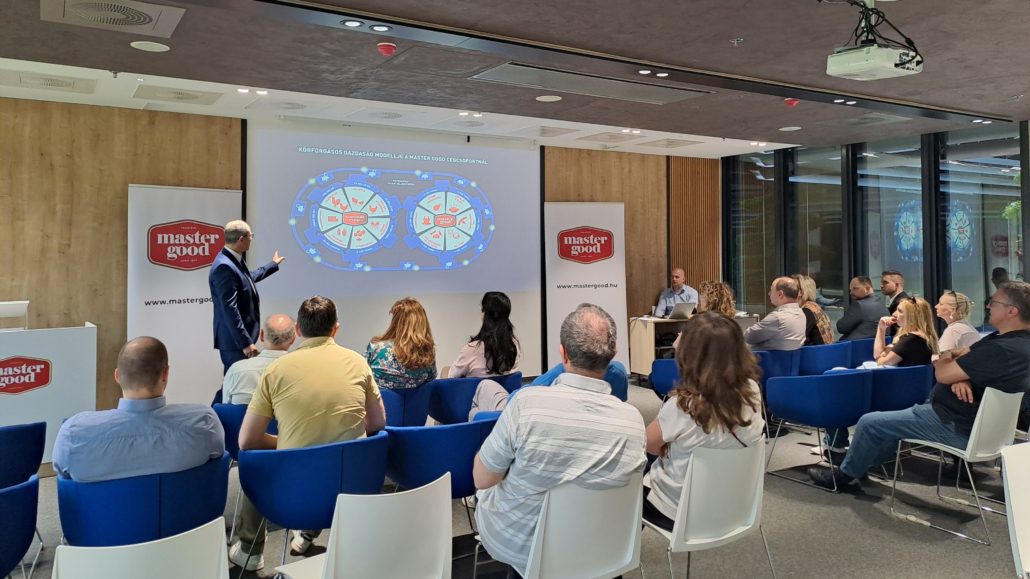 | 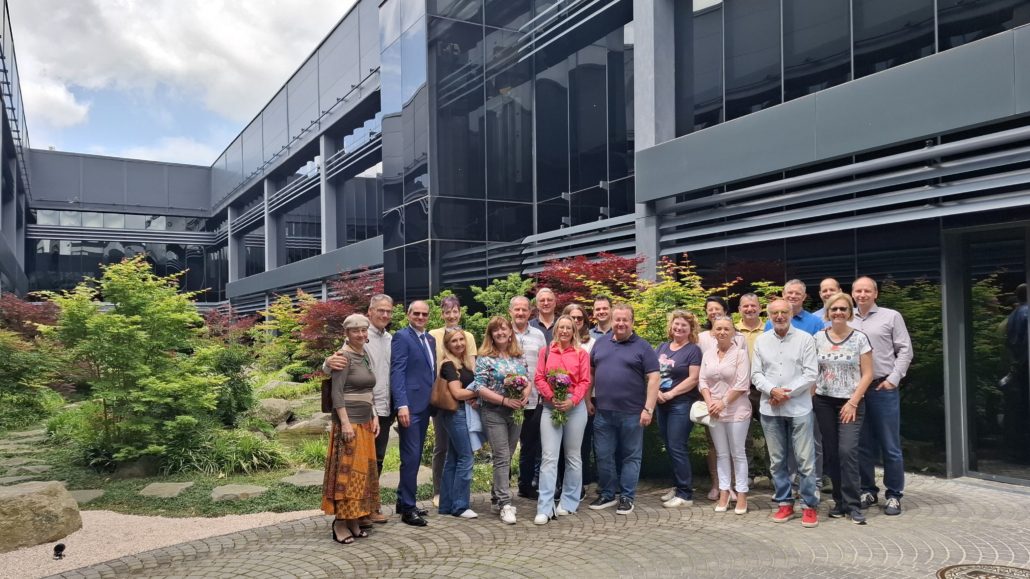 | 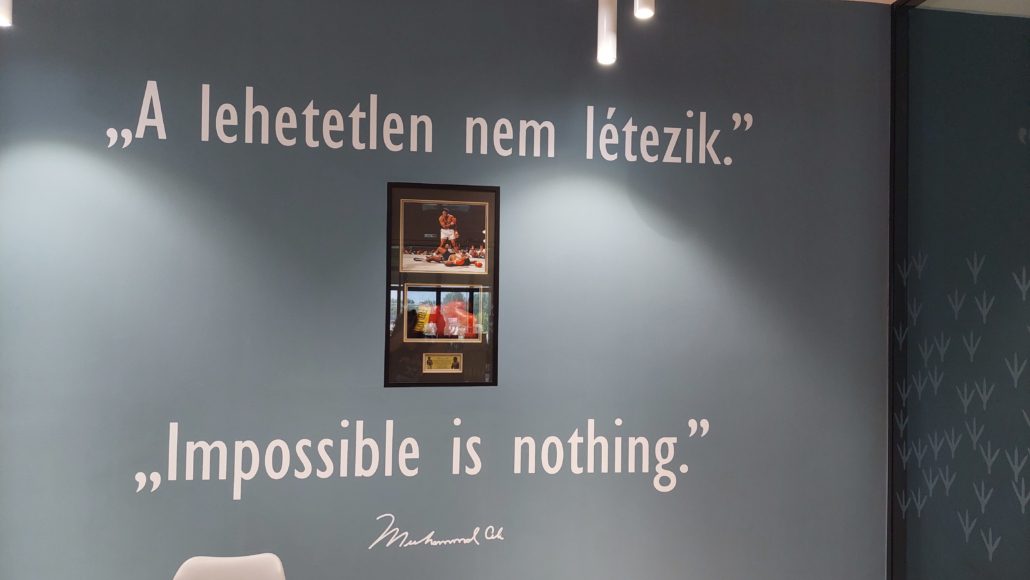 |
We would like to thank the leaders and staff of Agroloop and Master Good for their hospitality and for organizing such an informative program.
A selection of photos from the event is available here.
SPAR Hungary received recognition in a total of five categories at the 2025 Store of the Year competition. In addition to winning in the supermarket and hypermarket categories, the company was also awarded the titles of Retailer of the Year for Fresh Meat, Environmentally-Conscious Retailer of the Year, and Fresh Bakery Retailer of the Year. The latter was awarded to SPAR for the very first time, reflecting the success of its long-term efforts to enhance its bakery product range.

SPAR’s performance recognised in five categories at the Store of the Year competition
SPAR Hungary’s stores and trades section received positive professional recognition at the 2025 Store of the Year competition. The company secured first place among retail chains in three key categories: Retailer of the Year for Fresh Meat, Environmentally-Conscious Retailer of the Year, and – for the first time – Fresh Bakery Retailer of the Year. Additionally, the SPAR supermarket on Hűvösvölgyi Road in Budapest and the INTERSPAR hypermarket on Balatoni Road in Székesfehérvár won the top prizes in their respective categories.
“Winning the top prize in the fresh bakery category for the first time is particularly significant feedback for us. It demonstrates that our proprietary product portfolio, built on high-quality ingredients with a continuously expanding range, and our developments tailored to customer needs have been successful. We are proud to be the only participant in the competition to be recognised in five categories. This success validates the daily work our colleagues put in for our customers – whether it’s about our fresh product offerings, sustainable operations, or the quality of our stores,” said Márk Maczelka, head of communications at SPAR Hungary.

Superbrands 2025: SPAR, INTERSPAR, and Regnum brands honoured
In 2025, the Superbrands Hungary Expert Committee awarded the Superbrands titles for the 21st time, while the Business Superbrands awards were presented for the 18th time. SPAR Hungary’s three brands – SPAR, INTERSPAR, and Regnum – all received this prestigious professional recognition.
The SPAR brand has now been awarded the Superbrands title for the 17th time since 2005, INTERSPAR for the 10th time, and the Regnum brand for the fifth consecutive year. The international programme aims to recognise brands whose exceptional performance stands out amongst their competitors.

Trusted Employer certification for SPAR’s HR practices
SPAR Hungary has been awarded the Trusted Employer 2025/27 certification by the German-Hungarian Chamber of Industry and Commerce (DUIHK). This recognition is professional validation of the company’s consistent and well-considered HR practices, which prioritise employee appreciation, a safe and predictable working environment, and measures to support long-term commitment. The three-year certification signifies that SPAR, as an employer, represents stable, predictable, and people-centric operations, fostering trust among employees and partners alike.
Award-winning own-brand product: frozen lángos dough
SPAR’s HAZAI.SZERETEM quick-frozen lángos dough won the semi-prepared and ready-to-eat category of the 2025 Own-Brand Product of the Year competition. Combining traditional recipes with modern solutions and packaged in environmentally conscious materials, this product aligns with SPAR’s innovative aspirations, which have been recognised with several awards this year.
SPAR is continuing its highly successful animated series ‘SPAR ECO ADVENTURE’ (SPAR ÖKO KALAND) with new episodes. The aim of these short films, which present environmental awareness in a playful way, is to introduce the principles of sustainable development to the youngest generation in a way that is easy to understand.
The initiative was launched in September 2021, when SPAR presented a ten-part animated series for preschoolers and primary school children. The short, 40-second episodes told stories in a language that even the youngest children could understand about topics that are crucial for sustainability, such as selective waste collection, reducing food waste, healthy lifestyles and avoiding single-use plastics. The series is both educational and entertaining, and now new episodes are being added, closely matching the mood and content of the original series. The popular characters – Szellőcske, Vizecske, Tüzecske, Földecske and Szívecske – (evoking elements) return to raise awareness of the importance of environmental protection through new adventures, among other topics.

“The new episodes are consistent with the first series, both visually and thematically. The goal remains the same: to help children learn and master the basics of sustainable living at a very young age through understandable, entertaining stories. We believe that education is the key to a sustainable future, and that this work must begin in childhood. With the ECO ADVENTURE series, we are giving parents and teachers a tool that shapes children’s attitudes in a playful yet effective way,” emphasised Márk Maczelka, head of communications at SPAR Hungary.
The ECO ADVENTURE series, created as part of the ‘SPAR – for a sustainable future’ programme, is another milestone in the company’s responsible environmental and social commitment. SPAR remains committed to contributing to a greener, more conscious future, where love and respect for nature become natural values from an early age.
As a responsible company, SPAR thinks long term and seeks solutions that ensure more sustainable operations, whether through the use of energy-efficient technologies, waste reduction or encouraging conscious consumer behaviour. Sustainability is a central issue not only in its operations but also in its social engagement, with a particular focus on education and awareness raising.
The new episodes, like the previous ones, are available on SPAR’s YouTube channel and on the company’s official sustainability website: www.sparafenntarthatojovoert.hu/okokaland
![]()
Business Council for Sustainable Development in Hungary
1118 Budapest, Ménesi street 9/a.
Policies and statements
Privacy policy
Competition Law Statement
Code of Ethics
World Business Council for Sustainable Development (WBCSD) National Partner
